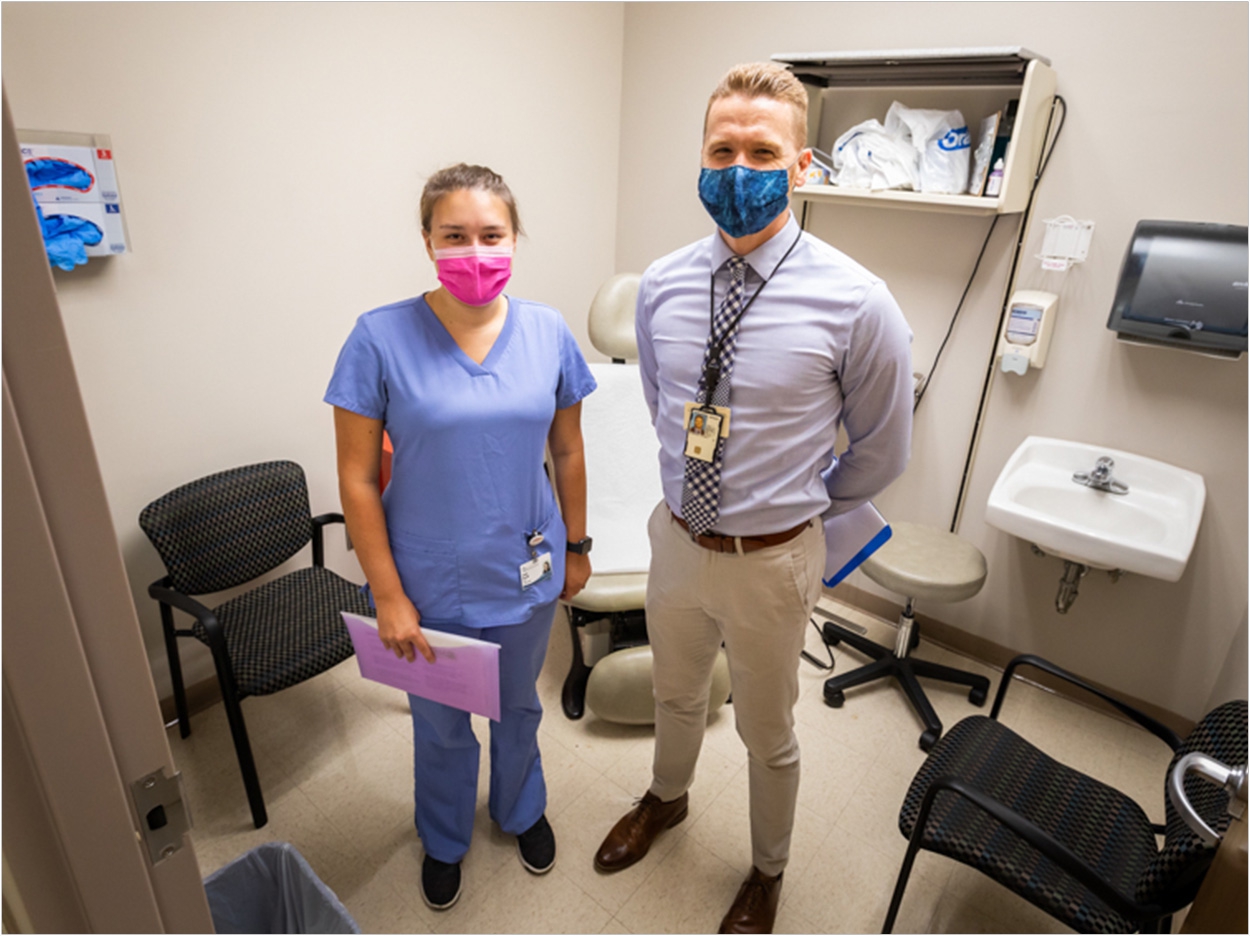
A study linking improved oral hygiene to a reduction in postoperative pneumonia in lung and esophageal cancer patients inspired a program to improve care at the University of Mississippi Medical Center Cancer Center and Research Institute.
According to the institute, 20% to 40% of patients risk some kind of lung infection after surgery, so battling pneumonia is a top priority for Dr. Jacob Moremen, an assistant professor of surgery and member of the interdisciplinary thoracic team at the institute.
“Pneumonia is typically the first domino to fall. If you’re going to have subsequent problems (after surgery), it starts with that infection, which can lead to a longer time in the hospital and possibly other infections,” which leads to even greater issues, Moremen said.
The use of anesthesia during surgery increases incidences of aspiration, or breathing of foreign materials into airways. The risk of aspiration is what’s behind the common recommendation for patients not to eat anything after midnight on the day of surgery.
“Normal people aspirate every day, but we have good mechanisms, like coughing, and healthy immune systems protect us,” Moremen said.
But people under anesthesia, especially those who are immunocompromised, have weakened defenses and risk complicated aspirations. The study that Moremen reviewed showed that improved oral hygiene could make a positive impact on a patient’s results after surgery, likely because of a decrease in bacteria in the mouth and, as a result, a decrease in bacteria being aspirated during and soon after surgery.
Moremen then teamed up with Dr. Sandra Horne, a professor of dental hygiene at the University of Mississippi School of Dentistry, to launch their own research. Horne helped secure dental supplies at a reduced cost, and they started offering patients at the institute packages with toothbrushes, dental floss, and other hygiene items.
Beginning in fall 2019, students in the dental hygiene program were stationed at the Thoracic Oncology clinic. They visited patients, many of whom had just learned of their cancer diagnosis, to assess their oral hygiene and provide education.
The dental hygiene students documented the patients’ plaque index, offered oral hygiene education, and provided the package of supplies, with the goal of improving the patients’ oral hygiene before surgery, usually scheduled for around two weeks later.
“The students will teach oral education to the patient, such as how to correctly take care of their teeth and mouth, if he or she feels comfortable,” said Horne, noting that if the patient declines to participate, they are given written materials to view later.
“We want our students to develop skills to be empathetic toward these patients, because they’re in a state of having had trauma. The lessons they learn here will improve their delivery of oral healthcare to future patients,” said Horne.
During the appointment, students explain that while topics such as teeth brushing and flossing could seem trivial given their recent news, improved oral hygiene could have a major impact on the success of their upcoming surgery.
The students use disclosing solution to change the color of the patient’s plaque and highlight trouble areas. Students then can show the patient those areas and educate them about correct teeth brushing, dental flossing, and tongue cleaning.
Two weeks later and prior to the patient’s surgery, dental hygiene faculty will re-assess the patient’s plaque index and other oral hygiene indicators. They then record that data for the research study.
Ellie Roberts, a graduate of the dental hygiene program who rotated through Moremen’s clinic, said the experience was unique.
“I learned that it goes such a long way in healthcare and in life in general to be kind and understanding of people,” Roberts said. “I always explained to the patients that I can only imagine what ‘I’m going to take you to the next room to go over oral hygiene’ could seem like after receiving the news of a difficult diagnosis.”
Roberts and her fellow students always sought to be as empathetic as possible while sharing with patients the science behind why oral hygiene is especially important as they face surgery.
“I tried to show them I truly do care and want them to have the best chance possible at a successful surgery and full recovery,” Roberts said.
Although the project was halted for several months because of the COVID-19 pandemic, members of both departments are already thinking how they can collaborate more in the future.
“it’s really opened our eyes to where we can further develop this because it’s becoming very evident that these patients need their teeth cleaned before surgery,” Horne said.
The partnership offers the Department of Surgery a unique chance to work on a big problem using a different approach, the institute said.
“It’s easy to keep banging away at the same stuff: more masks, cleaner instruments, faster surgery,” said Moremen, who feels confident in his out-of-the-box approach. “We want to make thoracic cancer surgery as low risk as we can, and this is an area for risk reduction and quality improvement.”
Related Articles
Oral Hygiene Prevents Pneumonia in Patients on Ventilators
Oral Healthcare Program Reduces Pneumonia Cases in Nursing Homes
Improved Oral Hygiene Reduces Risks of Acquiring Ventilator-Associated Pneumonia


